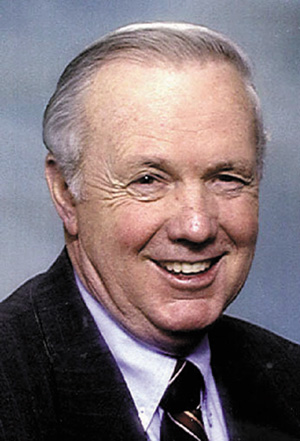No. 365 - THE DAWN OF THE "HYDROGEN" ECONOMY
No. 365
Jim Davidson...NEWSPAPER COLUMN
THE DAWN OF THE 'HYDROGEN' ECONOMY
Way back in 1953, our family bought our first new car. It was a beautiful brown and tan Bel-Air Chevrolet and I loved to talk mom into giving me the keys, a few dollars out of our restaurant's cash drawer and go see if some of the girls in our town wanted to take her for a spin. Back then I never dreamed that the automobile, and the energy it consumed, would someday be a monumental problem for our nation in terms of air pollution, maintaining our highway system and finding an adequate supply of fossil fuels to keep up with the demand.
You, no doubt, have been hearing about the development of the hydrogen fuel cell and the fact that energy from this source does not pollute the environment. The really good news, at least to consider, is that hydrogen fuel cells have the potential to provide all the energy needed for every human being on earth in the coming decades. Even at current levels, the energy needs of all the nations throughout the world are straining the limits of what can be produced using fossil fuels.
According to most authorities in this field, we are fast reaching the peak of the supply of coal, oil and natural gas found on earth. When the peak is reached and we start down the other side, the law of supply & demand kicks in and prices will soar as supply dwindles. By contrast, hydrogen is the lightest and most ubiquitous element found in the universe. When harnessed as a form of energy, it becomes the forever fuel. It never runs out, and because it contains not a single carbon atom, it emits no carbon dioxide.
A few weeks ago I received the most enlightening book I have ever received or read on this subject. The book is titled, "The Hydrogen Economy" and was written by Jeremy Rifkin. Mr. Rifkin is the president of the Foundation on Economic Trends in Washington, DC and has authored a number of other books that have been translated into fifteen different languages. In his new book Mr. Rifkin takes us on an eye-opening journey into the next great commercial era of history.
He sees the dawn of a new economy powered by hydrogen that will fundamentally change the nature of our market, political and social institutions, just a coal and steam power did at the beginning of the Industrial Age. You know he is on to something when you learn that the major automakers have already spent more than two billion dollars developing hydrogen cars, busses and trucks, and the first mass produced vehicles are expected to be on the road in just a few years.
We are not just talking about transportation here. In the hydrogen era, says Rifkin, every human being could become the producer as well as the consumer of his or her own energy-so called "distributed generation." When millions of end-users connect their fuel-cells into local, regional, and national hydrogen energy webs (HEW's) using the same design principles and smart technologies that made possible the World Wide Web, they can begin to share energy "peer-to-peer" creating a new decentralized form of energy use.
Another tremendous advantage of this new technology is the prospects for less dependence on Middle East oil that will diffuse the dangerous geopolitical game being played out between Muslim militants and Western nations. Incidentally, this book will also give you some real insights as to why we are in such a mess with Arab nations today. Hydrogen energy will also dramatically cut down on carbon dioxide emissions and mitigate the effects of global warming. And because hydrogen is so plentiful and exists everywhere in earth, every human being could be "empowered," making it the first truly democratic energy regime in history. But there is a catch. We must prevent the 'giants' from taking this technology over. Read the book, "The Hydrogen Economy" if you want to know more. (Jim Davidson is a motivational speaker and syndicated columnist. You may contact him at 2 Bentley Drive, Conway, AR 72034.)
